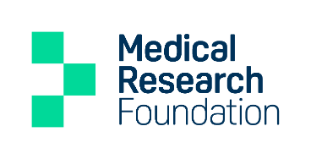Eating disorder symptoms and self-harm are linked to higher levels of depression and anxiety during the COVID-19 pandemic

Eating disorders and self-harm are common and troubling mental health problems among young adults.
About the Research
In the UK, approximately 1.25 million people are living with an eating disorder and almost 1 in 15 adults report self-harm.
These conditions are associated with suffering, reduced quality of life, and considerable strain on carers.
Eating disorders and self-harm are also linked to early mortality, and increased risk of other illnesses.
People with eating disorders are up to three times more likely to develop later depression and up to seven times more likely to develop later anxiety disorders than individuals without an eating disorder.
Similarly, up to half of individuals who self-harm have depression, and around a third of those who self-harm have an anxiety disorder.
Given this pre-existing situation, there is concern that people with eating disorder symptoms and self-harm may be particularly struggling during the COVID-19 pandemic.
However, given the reduction in face-to-face services and the pre-existing high thresholds for accessing ongoing treatment, little is known about the experiences of depression, anxiety and mental wellbeing in young people with eating disorder symptoms or self-harm during the pandemic.
We assessed depression and anxiety symptoms, as well as mental wellbeing during the COVID-19 pandemic in over 2,500 young adults and compared those with and without a history of eating disorder symptoms and/or self-harm.
Our findings suggest that people with a history of eating disorder symptoms and/or self-harm are at higher risk for mental health problems during the pandemic, and they are likely to need sustained help from mental health services.
Policy Implications
- Individuals with previous eating disorder symptoms and self-harm should be considered vulnerable to depression and anxiety throughout the pandemic and beyond.
- Funding for rapid and responsive service provision is essential to reduce the impact of the pandemic on those with mental health problems.
- Primary care should be better resourced to identify those with eating disorder symptoms and self-harm in need of help.
- Secondary care should have sufficient resources for those needing support.
- Lifestyle changes (e.g. visiting green space) alone may not improve mental health.
- Individuals with eating disorder symptoms and self-harm are likely to need long-term help from mental health services.
- Regardless of severity, individuals with eating disorder symptoms should have access to broader mental health support (from their GP or secondary care).
In a group of 2,657 young adults, we investigated the relationship between previous reports of eating disorder symptoms and self-harm before the pandemic and mental health problems (symptoms of depression and anxiety) and mental wellbeing during the COVID-19 pandemic.
We also looked at whether lifestyle changes (e.g. more sleep, relaxation techniques, visiting green space) could be linked to mental health and wellbeing in young adults with and without previous eating disorder symptoms or self-harm.
These young adults were from the “Avon Longitudinal Study of Parents and Children”, also known as the “Children of the 90s” study. Born in 1991 and 1992, their health and wellbeing has been studied at regular timepoints ever since.
In this study, the young adults reported their eating disorder symptoms (fasting, purging, binge-eating, excessive exercise) and self-harm at 25 years (in 2017), and reported their depressive symptoms, anxiety symptoms and mental wellbeing aged 28 years (in May-July 2020).
Key findings
- At age 25, 32% of the 2,657 young adults reported at least one eating disorder symptom, 9% reported self-harm, and 5.5% reported both an eating disorder symptom and self-harm in the last year.
- During the pandemic, those with previously reported eating disorder symptoms and/or self-harm had more symptoms of depression and anxiety, and worse mental wellbeing, compared to individuals without previous symptoms.
- This remained the case after adjusting for their pre-pandemic levels of depression, anxiety and mental wellbeing.
- On average, individuals with prior reported eating disorder symptoms and self-harm scored 3 points higher on the GAD-7 standard anxiety questionnaire than individuals without.
- The presence of any eating disorder symptoms (not just more frequent symptoms consistent with a clinical diagnosis), was associated with worse mental health during the pandemic.
- Lifestyle changes appeared to have little effect on the increased risk for mental health problems in those with prior eating disorder symptoms or self-harm.
The relationships between mental health and lifestyle changes are complex as changes in lifestyle may be consequences of the pandemic.
Nevertheless, the findings suggest that health service interventions, rather than individual lifestyle changes, are likely to be necessary for people with mental health problems during and after the pandemic.
Further information
Warne, N., Heron, J., Mars, B., Kwong, A. S. F., Solmi, F., Pearson, R., Moran, P., Bould, H.. Disordered eating and self-harm as risk factors for poorer mental health during the COVID-19 pandemic: a UK-based birth cohort study. J Eat Disord 9, 155 (2021). https://doi.org/10.1186/s40337-021-00510-9
Authors
Dr Naomi Warne, Dr Jon Heron, Dr Becky Mars, Dr Alex Kwong, Dr Francesca Solmi (UCL), Dr Rebecca Pearson, Prof Paul Moran, Dr Helen Bould, University of Bristol
Acknowledgements
We are extremely grateful to all the families who took part in this study, the midwives for their help in recruiting them, and the whole ALSPAC team, which includes interviewers, computer and laboratory technicians, clerical workers, research scientists, volunteers, managers, receptionists and nurses.
This work was supported by the Elizabeth Blackwell Institute, University of Bristol, with funding from QR SPF (Quality-Related Strategic Priorities Fund), UKRI Research England, and funding from the Wellcome Trust ISSF3 grant 204813/Z/16/Z. This work was also supported by funding from the Medical Research Council/Medical Research Foundation (MRC/MRF grant number MR/S020292/1). ALSPAC funding is listed on the ALSPAC website.
Policy Briefing 112: Dec 2021
Eating disorder symptoms and self-harm are linked to higher levels of depression (PDF, 324kB)
Contact the researchers
naomi.warne@bristol.ac.uk



